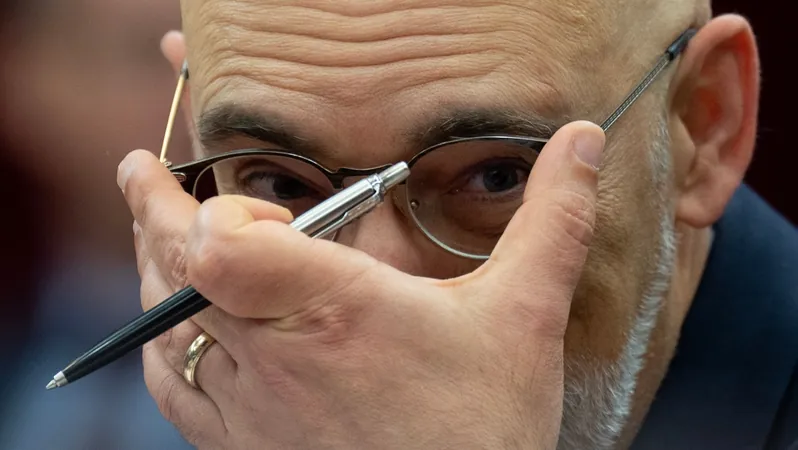
Fiscal Dilemma: Expanding Senior Benefits Could Cost Canada Dearly, Warns Budget Officer
2024-09-24
Introduction
Canada's Parliamentary Budget Officer (PBO) has raised alarms regarding the potential financial implications of the Bloc Québécois’s demand to expand benefits for seniors. If the federal government heeds this demand, it might jeopardize its fiscal stability, creating a significant burden on the country's finances.
Political Context
Recently, Bloc leader Yves-François Blanchet revealed that his party will vote against an upcoming Conservative motion of non-confidence, effectively granting Prime Minister Justin Trudeau’s minority Liberal government a reprieve from an imminent election. In exchange, Blanchet is advocating for an extension of the increase in Old Age Security (OAS) payments to seniors aged 65 to 74. The Liberals previously announced a 10% increase in OAS benefits, but this adjustment only applies to those over 75.
Power Dynamics
Blanchet asserted, "We have positioned our demand at the heart of this government’s survival. This is what we define as power," emphasizing the leverage his party holds in the current political landscape.
Financial Implications
During Monday’s episode of CTV’s Power Play, Parliamentary Budget Officer Yves Giroux expressed that meeting the Bloc’s requirements could prove financially detrimental. Giroux projected that fulfilling this promise would entail an annual cost exceeding $3 billion, totaling an estimated $16.1 billion over five years. He elaborated, "Integrating this into the government’s established fiscal framework could be quite complicated. This would represent a substantial financial commitment."
Fiscal Objectives
He further highlighted the government's current fiscal objectives, which aim to maintain the deficit below $40.1 billion for the current fiscal year while also working towards reducing both the debt-to-GDP and deficit-to-GDP ratios by the 2024-2025 period. The government has set a target of confining deficits to just 1% of GDP by 2026-2027. "All these financial parameters would face severe risks should the government acquiesce to this request without simultaneously finding a way to cut spending elsewhere," Giroux cautioned.
Government Response
Questions directed at Deputy Prime Minister and Finance Minister Chrystia Freeland regarding the affordability of the Bloc's proposal were met with vague optimism. She mentioned, "Conversations are ongoing," implying discussions are being held regarding potential economic measures in collaboration with both the Bloc and the NDP.
Conclusion
Ultimately, the scenario poses a precarious balancing act for the Liberals, as they navigate the demands of a minority government while adhering to fiscal challenges. The potential expansion of benefits for seniors not only raises questions about economic feasibility but could also shift the landscape of Canadian politics as parties negotiate for vital support. What happens next could very well redefine the dynamics of power in Ottawa—stay tuned!









 Brasil (PT)
Brasil (PT)
 Canada (EN)
Canada (EN)
 Chile (ES)
Chile (ES)
 España (ES)
España (ES)
 France (FR)
France (FR)
 Hong Kong (EN)
Hong Kong (EN)
 Italia (IT)
Italia (IT)
 日本 (JA)
日本 (JA)
 Magyarország (HU)
Magyarország (HU)
 Norge (NO)
Norge (NO)
 Polska (PL)
Polska (PL)
 Schweiz (DE)
Schweiz (DE)
 Singapore (EN)
Singapore (EN)
 Sverige (SV)
Sverige (SV)
 Suomi (FI)
Suomi (FI)
 Türkiye (TR)
Türkiye (TR)